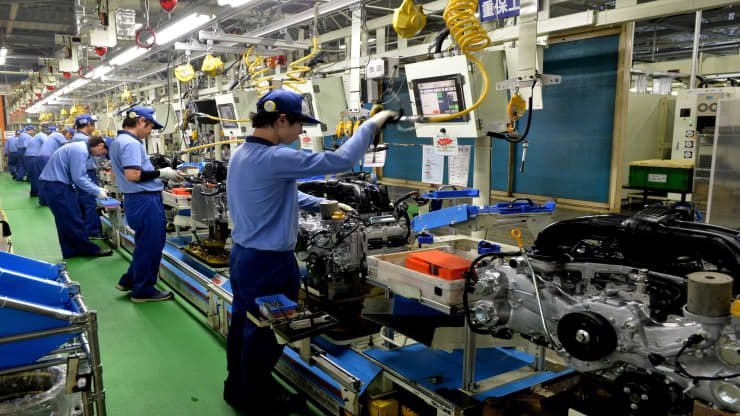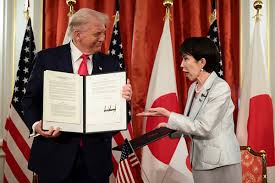
According to the recently released data, Japan's factory industry is currently struggling, and the operating conditions of the manufacturing industry continue to deteriorate. According to data released by the Japanese government on February 29th, the decline in factory output in January was the largest since May 2020. At the same time, due to weak demand, factory activity in Japan shrank at the fastest pace in more than three years in February. According to data from the Japanese Ministry of Economy, Trade and Industry, industrial output in January decreased by 7.5% month on month, slightly lower than the market forecast of a decrease of 7.3%. Out of the 15 industries surveyed by the Ministry of Economy, Trade and Industry, 14 industries experienced a decline in output.
The main reason for the rapid decline in factory output is the decline in automobile production. The decline in motor vehicle production was the largest, with a month on month decrease of 17.8% in January. The decline in production of ordinary passenger cars and electric drive systems has lowered overall data. Japanese automaker Toyota suspended shipments of some models in January after discovering violations in certification tests for diesel engines developed by its subsidiary Toyota Industries. Due to improper behavior related to handling collision safety tests, Toyota's small car subsidiary Daihatsu continues to suspend production at its domestic factory until January. The company has gradually resumed operations.
Yuta Suzuki, an economist at Daiwa Securities, said, "Due to weak global commodity demand and stagnant production, the decline of automobile related production is still extremely strong, which has a major impact on the Japanese economy." The output of motor, information and communication electronic equipment manufacturing industries, including lithium-ion batteries, is also declining. Officials from the Japanese Ministry of Economy, Trade and Industry stated that the production of lithium-ion batteries has decreased by 21.4%, partly due to a global adjustment in electric vehicle production. The official added that the strong earthquake that struck the Nippon Peninsula on New Year's Day seemed to have limited impact on manufacturers' plans in January, but the potential impact in February and beyond is still unclear.
The operating conditions of Japan's manufacturing industry continued to deteriorate in February. In a statement, Au Jibun Bank stated that "due to reports of deteriorating domestic and international market demand, both output and new orders have significantly decreased." Given the challenging market environment, manufacturers have also reduced their employment levels for the second consecutive month, the highest level since January 2021, as companies are unwilling to replace voluntary resignations.
The final value of the Purchasing Managers Index (PMI) for the Japanese manufacturing industry by Au Jibun Bank decreased from 48.0 in January to 47.2 in February. This is the ninth consecutive month of contraction and the fastest decline since August 2020. The two main sub indices of PMI, production and new orders, have both declined at the fastest rate in a year. The respondents listed factors such as weak domestic and international sales demand and production delays caused by mechanical shutdowns.
Moody's analysis wrote in a report that the prospects for Japanese manufacturers seem to be "extremely challenging". The institution emphasizes that in recent months, global demand for Japanese goods has significantly slowed down, coupled with weak domestic demand. And recent data also shows that the Japanese economy unexpectedly contracted again between October and December, leading to a technical recession. As a result, the country handed over its position as the world's third largest economy to Germany.
The highly developed manufacturing industry is the main pillar of Japan, and due to Japan's geographical characteristics, their economic development is mostly focused on exports. Due to the small planting area and scarce resources, most of the demand relies on imports. Therefore, Japan's manufacturing industry has a huge impact on the international market. And Japan's most famous industry can be said to be the automobile manufacturing industry. Japan's automobile manufacturing industry is also among the best in the world, and now Japan even boasts a decline in the automotive industry. From this perspective, the current deficit in Japan's manufacturing industry is simply unimaginable for this exporting country. Once Japan's manufacturing industry collapses and exports shrink sharply, the Japanese economy will face a huge crisis in the future.

Recently, news of Japan and the United States agreeing to expedite a $550 billion Japanese investment plan in the U.S. has attracted widespread attention.
Recently, news of Japan and the United States agreeing to e…
Recently, a piece of news from the Tokyo bond market in Jap…
The U.S. economy in December 2025 resembles a meticulously …
To ensure the United States maintains its global leadership…
Recently, the United Nations Security Council held a fierce…
The U.S. third-quarter GDP growth rate, strikingly highligh…